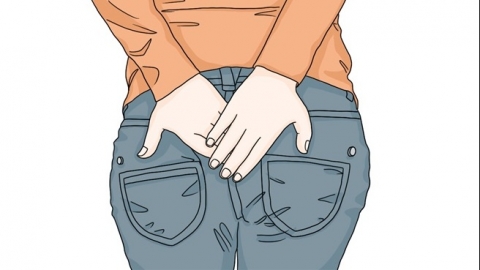When is surgery not necessary for hemorrhoids?
Whether hemorrhoids require surgery generally depends on the severity of symptoms. Surgery is usually not necessary for mild internal hemorrhoids, asymptomatic external hemorrhoids, mild hemorrhoids during pregnancy, mixed hemorrhoids that have improved with conservative treatment, and occasional minor bleeding from hemorrhoids. Specific details are as follows:

1. Mild internal hemorrhoids: If internal hemorrhoids only occasionally cause slight discomfort or fullness after bowel movements, without prolapse, bleeding, or with minimal bleeding, and symptoms can be relieved by adjusting diet and maintaining regular bowel habits, surgery is not required. Daily care can effectively control symptom progression.
2. Asymptomatic external hemorrhoids: If external hemorrhoids present only as small subcutaneous lumps around the anus without pain, itching, redness, or swelling, and do not interfere with daily activities or defecation, no special treatment or surgery is needed—regular observation suffices.
3. Mild hemorrhoids during pregnancy: Mild hemorrhoids caused by hormonal changes and increased abdominal pressure during pregnancy often resolve spontaneously after childbirth. Due to higher surgical risks during pregnancy, conservative management such as warm sitz baths and dietary adjustments are preferred, and surgery is typically unnecessary.
4. Mixed hemorrhoids improved by conservative treatment: If mixed hemorrhoids are mild, with only slight bleeding or prolapse that spontaneously reduces, and symptoms significantly improve with medications, sitz baths, or other non-surgical methods—especially if there is no long-term recurrence—surgical intervention is not needed.
5. Occasional minor bleeding from hemorrhoids: If bleeding occurs only occasionally in small amounts after constipation or improper diet, without persistent bleeding or pain, and symptoms resolve after improving bowel habits and avoiding triggers, surgery is not required; conservative management is sufficient.
After developing hemorrhoids, it is recommended to first adjust lifestyle habits and try conservative treatments while monitoring symptom changes. If symptoms progressively worsen or complications such as irreducible prolapse or heavy bleeding occur, prompt medical evaluation is essential to determine whether surgery is needed, so as to avoid delayed treatment.








